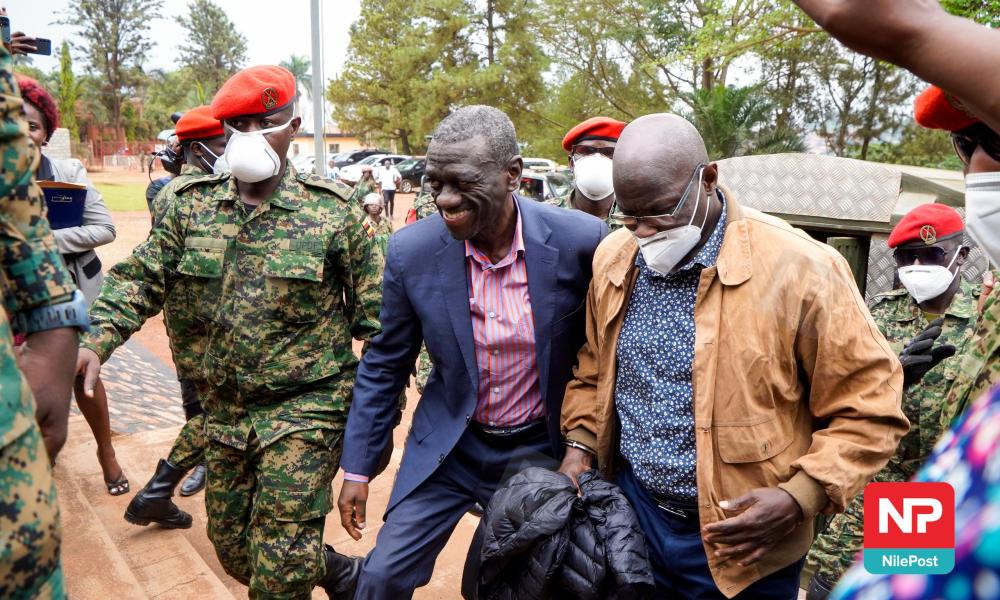
Tanzania forcibly relocating Indigenous Maasai-Human Rights Watch
Maasai tribesmen at one of the livestock market
July 31—Tanzania has been forcibly evicting Indigenous Maasai from their ancestral lands, a Human Rights Watch (HRW) report says.
The report, published on Wednesday, found that the Tanzanian government aims to relocate more than 82,000 people from lands it has earmarked for “conservation and tourism purposes”.
The programme, launched in 2022, aims to move people living in the Ngorongoro Conservation Area (NCA), home to the Maasai for generations, to Msomera village, which is roughly 600km (370 miles) away.
Amid the push, tension has erupted between the authorities and the nomadic community, at times resulting in deadly clashes.
HRW interviewed nearly 100 people, including community members who had already moved to Msomera village and others who were facing relocation, between August 2022 and December 2023.
While Tanzania’s nomadic community has been allowed to live within some national parks, authorities say that as the population increases, it encroaches on wildlife habitats.
Violations and violence
The resulting report found that the government had “not sought the free, prior, and informed consent of the Indigenous Maasai residents in the area” regarding its relocation plan.
The residents also described to HRW the “violations of their rights to land, education, health, and compensation and attacks on critics of the relocation process”.
They also assert that violence has been used during the relocating process, with “government-employed rangers assaulting and beating residents with impunity”.
HRW documented 13 incidents of beatings by rangers between September 2022 and July 2023.
One Msomera resident told HRW that those who spoke out against the relocation faced threats and intimidation from rangers and security forces.
“You’re not allowed to say anything,” the resident said, adding people have “fear in their hearts.”
Juliana Nnoko, a senior researcher on women and land at HRW, said the Tanzanian government needs to respect the rights of Indigenous Maasai communities.
“[It] is an ethical obligation as well as a legal one,” she said. “The government should urgently reconsider its approach to ensure the survival, well-being, and dignity of the Maasai people, which this relocation process is putting at grave risk.”
Tanzania’s government has consistently maintained that its relocation scheme observes the country’s laws regarding rights.
Tanzania forcibly relocating Indigenous Maasai–Human Rights Watch
News
Ugandan Citizen Abducted, Held in Secret Detention for Three Months, Sparks Outrage and Calls for Justice

A disturbing new case of unlawful detention has surfaced, highlighting the ongoing human rights crisis in Uganda. A Ugandan citizen was reportedly abducted and held in a secret facility, known as a “safe house,” for three months, only to be released without charge or explanation. This incident, reported by NTV Uganda, has sparked widespread condemnation and renewed calls for accountability regarding human rights abuses in the country.
While the details surrounding the abduction remain unclear, reports indicate that the individual was taken without due process and held incommunicado—an action that has long been condemned by human rights organizations. The victim’s release, with no charges filed and no clear justification, has angered activists and citizens, who view this as yet another case of egregious abuse of power by the state.
“This is a recurring pattern,” said one human rights activist. “Abductions, secret detentions, and unexplained releases have become all too common in Uganda. These acts violate fundamental human rights and erode public trust in the justice system.”
The use of “safe houses,” unregistered detention facilities reportedly operated by security forces, has been a focal point in numerous allegations of torture and illegal imprisonment. Despite repeated calls from both local and international organizations for their closure and accountability for those involved, little action has been taken to address these violations.
This case underscores the urgent need for reform within Uganda’s security apparatus and greater accountability for human rights abuses. Observers hope that drawing attention to these injustices will spur concrete action to bring those responsible to justice and ensure the protection of basic human rights.
As frustration mounts, calls for both domestic and international pressure to hold the government accountable for such crimes grow louder. “One day, there must be accountability for all these crimes against our people,” stated one social media user, reflecting the sentiments of many Ugandans.
News
NUP Gathering Disrupted: Kyagulanyi Alleges Security Force Harassment and Arrests

National Unity Platform (NUP) President Robert Kyagulanyi has accused Ugandan security forces of using excessive force to disrupt a planned NUP gathering. The allegations were detailed in a statement shared on Twitter, following an event held to honor children of NUP supporters who were killed, disappeared, or detained for their political beliefs.
According to Kyagulanyi, security personnel, under the command of an officer identified as Asiimwe, carried out a preemptive operation early in the morning upon learning of the NUP’s plans. The forces allegedly stormed the premises, arrested workers, and deployed tear gas to disperse those present.
“The criminals under the command of one Asiimwe deployed early morning, arrested our workers, and threw tear gas into our premises. They’ve cordoned off the premises and blocked all people from accessing the place,” Kyagulanyi wrote.
Among those reportedly arrested were Saava Peter, Mudenya Samson, and Turyasingura Samson. Kyagulanyi claimed the detained workers were subjected to beatings and interrogated about their political affiliations, with security operatives labeling them as terrorists.
“These JATT operatives asked the workers who they support politically, branding them terrorists and criminals—their only crime being that they work with us. You can imagine the indignity!” Kyagulanyi lamented.
This incident adds to the growing tension in Uganda’s political climate, where opposition parties frequently accuse the government of stifling dissent. Despite the challenges, Kyagulanyi ended his statement with a message of defiance and optimism, proclaiming, “UGANDA WILL BE FREE.”
NUP Gathering Disrupted: Kyagulanyi Alleges Security Force Harassment and Arrests
News
Sudan Demands Apology from Uganda Over Army Chief Muhoozi Kainerugaba’s Threat to Invade Khartoum

Sudan has demanded an official apology from Uganda over “offensive and dangerous” comments made by the chief of Uganda army staff, who threated to invade Khartoum, the Sudan Tribune has reported.
General Muhoozi Kainerugaba, son of Ugandan President Yoweri Museveni and CDF of the Ugandan army, posted two comments on the X platform on Tuesday in which he threatened “to capture Khartoum” with the support of the US President elect Donald Trump after he takes office. The posts were deleted later.
“The government of Sudan demands and official apology from the Ugandan government for the offensive and dangerous comments of the army commander,” Sudan’s foreign ministry said in a statement that the Sudan Tribune said it has seen.
Sudan Demands Apology from Uganda Over Army Chief Muhoozi Kainerugaba’s Threat to Invade Khartoum






